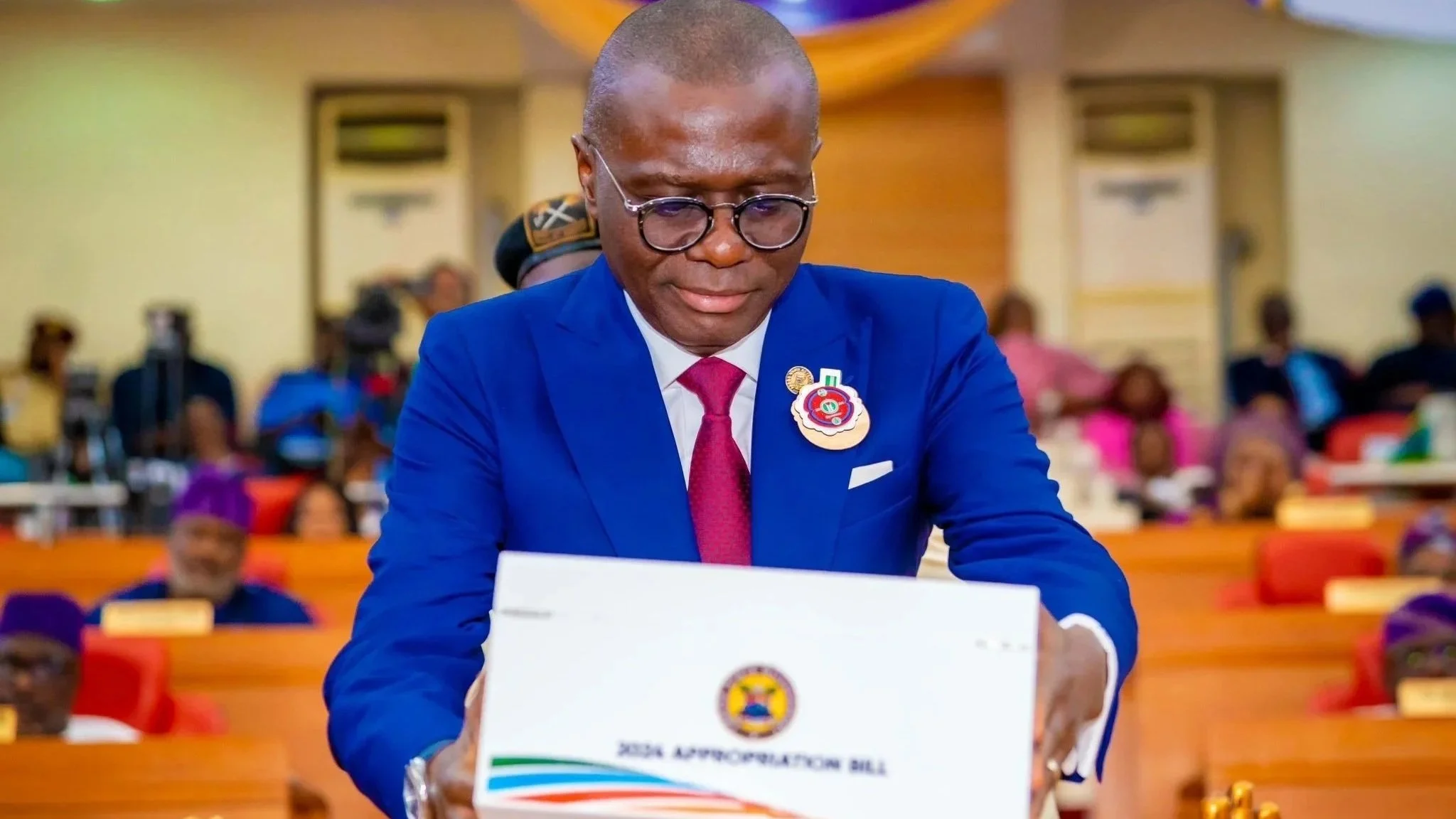Lagos State Governor Proposes Record ₦4.24 Trillion Budget for 2026 Fiscal Year
Lagos State Governor Babajide Sanwo-Olu has presented a historic ₦4.237 trillion budget proposal for the 2026 fiscal year, targeting aggressive infrastructure development and economic consolidation. Presented to the State House of Assembly on Tuesday, the "Budget of Shared Prosperity" represents a year-on-year increase of over ₦1 trillion compared to the ₦3.005 trillion approved for the 2025 fiscal cycle.
Focus on Capital Expenditure and Infrastructure
The 2026 proposal prioritises capital projects, allocating ₦2.185 trillion to capital expenditure against ₦2.055 trillion for recurrent expenditure. This distribution underscores the administration’s focus on completing major infrastructure projects designed to support the state's status as Africa’s second-largest city economy.
According to the proposal, the Economic Affairs sector—which covers transport, infrastructure, and economic stimulus received the largest share of the budget at ₦1.372 trillion.
Specific sectoral allocations relevant to the built environment include:
Economic Affairs: ₦1.372 trillion
Environment: ₦235.957 billion
Housing: ₦123.760 billion
General Public Service: ₦847.472 billion
Revenue Projections and Fiscal Strategy
The budget is anchored on a total revenue projection of ₦3.993 trillion, leaving a deficit financing requirement of ₦243.332 billion. The state projects an Internally Generated Revenue (IGR) of ₦3.119 trillion, with federal transfers expected to contribute ₦874 billion.
Governor Sanwo-Olu noted that these targets are supported by the state’s expanding revenue base. Data presented during the session indicated that Lagos generated ₦1.26 trillion in IGR in 2024, a significant rise from ₦815.86 billion in 2023.
Sectoral Breakdown Reflects Growth and Social Investment Priorities
Sanwo-Olu outlined sectoral allocations designed to support human capital development, transport infrastructure, public safety, and environmental management. Key allocations include:
General Public Service: ₦847.472 billion
Public Order and Safety: ₦147.040 billion
Economic Affairs: ₦1.372 trillion
Environment: ₦235.957 billion
Housing: ₦123.760 billion
Health: ₦338.449 billion
Education: ₦249.132 billion
Recreation and Culture: ₦54.682 billion
Social Protection: ₦70.024 billion
The Economic Affairs allocation driven largely by infrastructure, transport, and economic stimulus initiatives—accounts for the largest share of the proposed budget.
Operational Costs and Debt Servicing
The recurrent expenditure of ₦2.055 trillion includes ₦440.449 billion for personnel costs and a total overhead allocation of ₦1.084 trillion. Regarding debt management, the proposal earmarks ₦143.876 billion for recurring debt service charges and ₦383.404 billion specifically for debt repayment.
Conclusion
The 2026 budget proposal is now subject to legislative scrutiny by the Lagos State House of Assembly. If passed, the substantial allocation to Economic Affairs and Housing suggests a continued drive toward urban renewal and large-scale construction projects, positioning Lagos to accommodate its rapidly growing population while attempting to bridge the infrastructure deficit.

